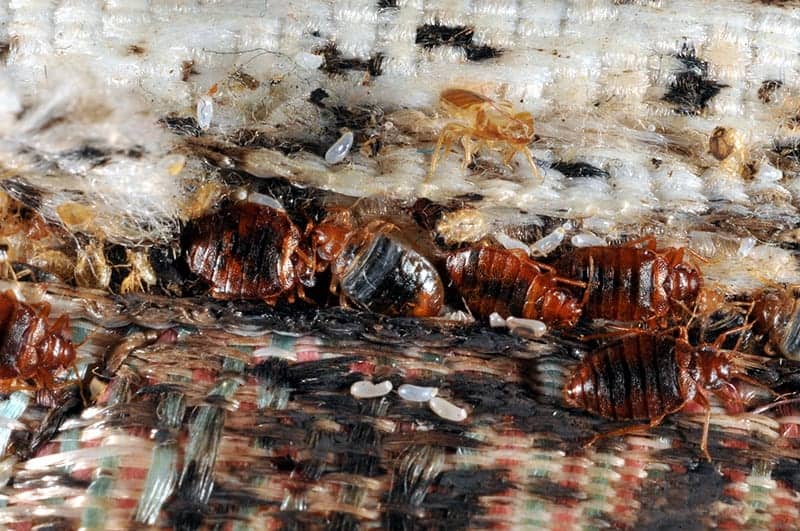The synthetic pesticides used to control bed bug infestations face two problems: the insects are gaining a tolerance to them, and many consumers are looking for “green” alternatives they consider safer to spray in their living spaces.
Plant-based essential oils may offer the solution to both problems. And a Purdue University study, led by entomologist Ameya Gondhalekar and his doctoral student, Sudip Gaire, has identified some of the most effective essential oil compounds for bed bug control.
Dozens of essential oils-based products on the market claim to kill or repel insects, but a previous Rutgers University study showed that few actually work against bed bugs. Gondhalekar and Gaire analyzed 15 essential oil compounds that are present in various aromatic plants for their toxicity to bed bugs and their ability to disrupt the insects’ nervous system function. Their findings were published in the journal Scientific Reports.
“Since bed bugs are found on beds and sofas, people want chemicals that are safe for humans. You cannot spray most of the currently available insecticides directly on your infested furniture. With these essential oils, you may have that flexibility because these compounds are considered to be low-risk options for bed bug control” said Gondhalekar, a Purdue research assistant professor in the Department of Entomology. “There is a growing demand for green products that people think have a minimal risk.”
All of the chemicals were effective when applied directly to the bed bugs, though the amount needed to kill them varied. Carvacrol, derived from oregano and thyme; thymol (thyme); citronellic acid (lemongrass); and eugenol (clove) were most effective.
When tested as fumigants, thymol, carvacrol, linalool (common in basil) and camphor (camphor tree) were most effective. Four of the compounds did not kill bed bugs over a 24-hour period.
It took about 70,000 times more of the most effective compound to kill a bed bug by contact than a control synthetic insecticide. With fumigants, this difference was only 400 times. That doesn’t mean plant essential oil compounds are ineffective, Gondhalekar said. Now that toxicity levels are known, effective products can be formulated.
Gondhalekar and Gaire also found that thymol, carvacrol and eugenol depressed the bed bug nervous system, whereas linalool caused excitation.
“If you’re going to formulate a product, you’re probably going to look to use higher concentrations of the compounds we show to be most effective,” Gaire said. “If you combine them, you might achieve better efficacy, but that research is still ongoing.”
Gondhalekar adds that it’s important for consumers to remember that the best practice for elimination of bed bugs is a combination of multiple strategies that includes pest monitoring, non-chemical techniques such as heat treatments, botanical compounds and synthetic insecticides.
The Center for Urban and Industrial Pest Management and the O.W. Rollins/Orkin Endowment funded this research.
If our reporting has informed or inspired you, please consider making a donation. Every contribution, no matter the size, empowers us to continue delivering accurate, engaging, and trustworthy science and medical news. Independent journalism requires time, effort, and resources—your support ensures we can keep uncovering the stories that matter most to you.
Join us in making knowledge accessible and impactful. Thank you for standing with us!

